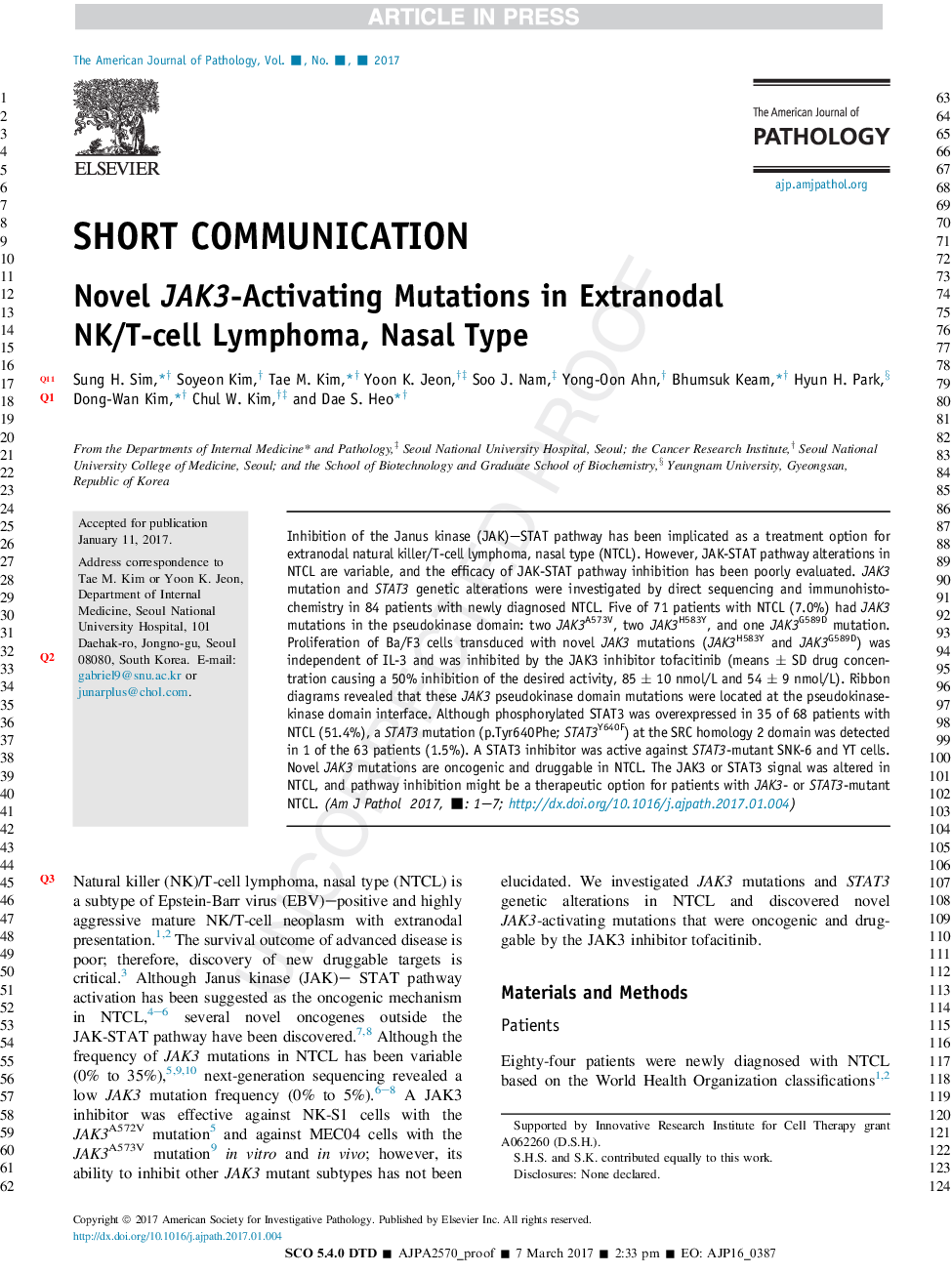| Article ID | Journal | Published Year | Pages | File Type |
|---|---|---|---|---|
| 5596104 | The American Journal of Pathology | 2017 | 8 Pages |
Abstract
Inhibition of the Janus kinase (JAK)-STAT pathway has been implicated as a treatment option for extranodal natural killer/T-cell lymphoma, nasal type (NTCL). However, JAK-STAT pathway alterations in NTCL are variable, and the efficacy of JAK-STAT pathway inhibition has been poorly evaluated. JAK3 mutation and STAT3 genetic alterations were investigated by direct sequencing and immunohistochemistry in 84 patients with newly diagnosed NTCL. Five of 71 patients with NTCL (7.0%) had JAK3 mutations in the pseudokinase domain: two JAK3A573V, two JAK3H583Y, and one JAK3G589D mutation. Proliferation of Ba/F3 cells transduced with novel JAK3 mutations (JAK3H583Y and JAK3G589D) was independent of IL-3 and was inhibited by the JAK3 inhibitor tofacitinib (means ± SD drug concentration causing a 50% inhibition of the desired activity, 85 ± 10 nmol/L and 54 ± 9 nmol/L). Ribbon diagrams revealed that these JAK3 pseudokinase domain mutations were located at the pseudokinase-kinase domain interface. Although phosphorylated STAT3 was overexpressed in 35 of 68 patients with NTCL (51.4%), a STAT3 mutation (p.Tyr640Phe; STAT3Y640F) at the SRC homology 2 domain was detected in 1 of the 63 patients (1.5%). A STAT3 inhibitor was active against STAT3-mutant SNK-6 and YT cells. Novel JAK3 mutations are oncogenic and druggable in NTCL. The JAK3 or STAT3 signal was altered in NTCL, and pathway inhibition might be a therapeutic option for patients with JAK3- or STAT3-mutant NTCL.
Related Topics
Health Sciences
Medicine and Dentistry
Cardiology and Cardiovascular Medicine
Authors
Sung Hoon Sim, Soyeon Kim, Tae Min Kim, Yoon Kyung Jeon, Soo Jeong Nam, Yong-Oon Ahn, Bhumsuk Keam, Hyun Ho Park, Dong-Wan Kim, Chul Woo Kim, Dae Seog Heo,
